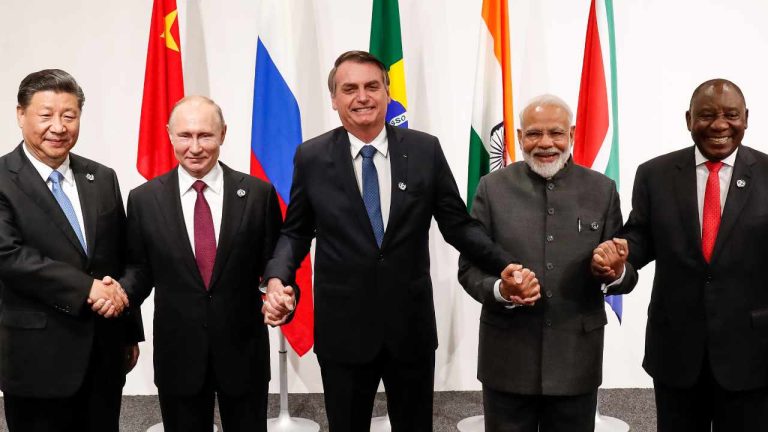
Economist Alexis Habiyaremye from the University of Johannesburg says that a proposed common BRICS currency, if used effectively and systematically for all trade transactions between BRICS nations, would “alleviate the burden on these countries to finance” the “disproportionate advantage that the dollar enjoyed in the international monetary system.”
‘BRICS Currency Has a Real Prospect of Becoming Global Currency’
Economist Alexis Habiyaremye discussed the challenges a common BRICS currency could pose to the U.S. dollar’s global reserve currency status in an interview with Putnik, published Saturday. Habiyaremye is a senior researcher who works for the South African Research Chair in Industrial Development at the University of Johannesburg, South Africa. He holds a Ph.D. in Economics and Policy Studies of Technical Change from the United Nations University/Maastricht University (UNU-MERIT).
Citing the “disproportionate advantage that the dollar enjoyed in the international monetary system,” the economist described: “This exorbitant privilege ensures that other countries end up financing the U.S. deficit because the U.S. federal reserve can simply print money, while other countries have to produce goods and services to have access to the dollars.”
There is an increasing trend among countries to reduce their reliance on the U.S. dollar and instead prioritize the use of their national currencies for trade settlements. One notable initiative in this regard is being undertaken by the BRICS countries (Brazil, Russia, India, China, and South Africa). The economic bloc is considering a proposal to establish a shared currency that would decrease member countries’ dependence on the USD. Commenting on the challenges a common BRICS currency could pose to the U.S. dollar, Habiyaremye detailed:
Introducing a new currency, if it were to be used effectively and systematically for all trade transactions between BRICS countries, would alleviate the burden on these countries to finance the exorbitant privilege.
“Because of the extraterritoriality of U.S. law for all parts of the world where the U.S. dollar is used, using a different currency would also enable these countries to avoid the arbitrary imposition of U.S. laws on their territories,” he continued.
The economist noted that the BRICS countries’ economic power has already surpassed that of Group of Seven (G7) countries in terms of purchasing power parity. He opined:
In terms of economic weight, the BRICS currency has a real prospect of becoming a global currency if members commit to increasing trade exchange between themselves.
“In terms of economic output, BRICS nations have the potential of producing most commodities and manufactured products needed in their international trade,” he added.
However, the economist cautioned that “as long as each individual country continues privileging its trade exchanges with the U.S. (or its monetary allies) for historical or political reasons, the BRICS currency will only remain an empty rhetoric.”
Habiyaremye clarified that creating a new currency for BRICS countries would require political will from the leaders of these countries and enough trade between them to make the currency economically viable.
“It is not enough to want to wean oneself from the dollar if the trade flows between the BRICS members or their immediate allies are not enough to support the new currency,” he stressed. Moreover, the economist pointed out that many BRICS countries currently trade more with the U.S. or with countries that use the U.S. dollar than they do with each other, emphasizing that the strength of a new BRICS currency would depend on these countries trading more with each other.
Do you agree with economist Alexis Habiyaremye? Let us know in the comments section below.










